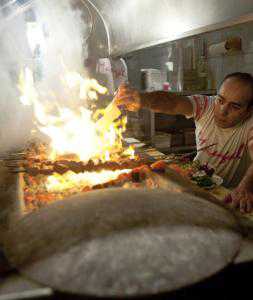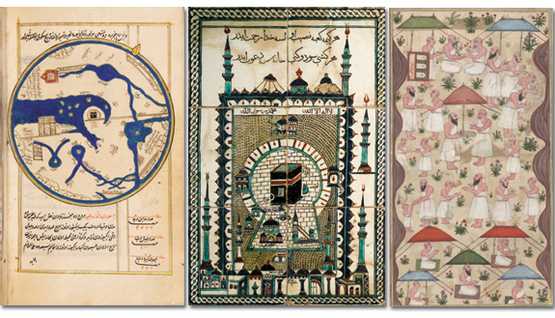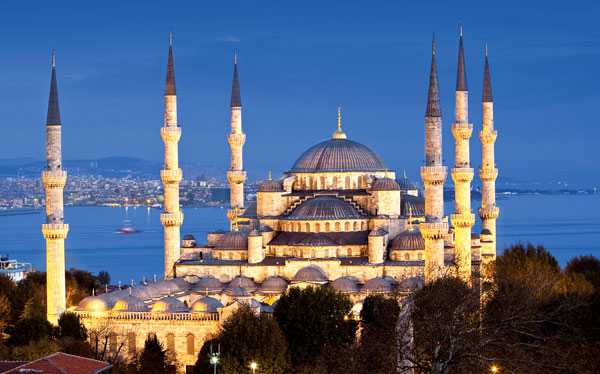CNN’s global series i-List takes you to a different country each month. In December, we visit Turkey and look at changes shaping the country’s economy, culture and social fabric.
(CNN) — A mother discovers a son she presumed dead; two lovers seek refuge for an illicit affair; a businessman finds joy in a city he once condemned.
Welcome to Istanbul as seen through the eyes of six young directors in a new film that attempts to reveal the city’s many faces, as well as its forgotten past.
Made up of six 15-minute shorts, “Do Not Forget Me Istanbul” is set to make its screening debut Friday.
“Istanbul has one of the most diverse and colorful histories of any major city on earth,” said Huseyin Karabey, the movie’s artistic director and producer. “You can turn onto a random street and stumble across a Roman building that was once a Turkish bath, which then became a British prison, and is now a Russian restaurant.”
“There are so many influences,” he added. “It’s sometimes hard to see them, and in our day-to-day lives we forget the elements of the past that make us who we are.”
I have no doubt that within the next few years, Turkish cinema will be the most important in Europe
–Aida Begic, director
Karabey, who won Best Director at New York’s Tribeca Film Festival for his 2008 love story “My Marlon and Brando,” says that this idea of a forgotten collective memory is what ties all the individual stories together.
The six directors include Sarajevo-born Aida Begic — who won the Cannes Critics’ Grand Prize for 2008 Bosnian drama “Snow” — and Hany Abu-Assad, whose “Paradise Now” took home the Golden Globe for Best Foreign Language Film in 2005.
None of the directors are originally from Istanbul, says Karabey, but all have been touched by their experience of the historic city, which sits on the border between Europe and Asia.
Begic’s story concerns a young Bosnian actress who, while in Istanbul preparing for a part in “Othello,” struggles to deal with the jealous phone calls of her lover.
“This is a woman divided by two different emotions,” said Begic. “Istanbul is physically divided in two by the Bosphorus Strait, and symbolically divided into the many different cultures that shape it. It’s the perfect city to explore this idea of a divided mind.”
During shooting, which began in August, all the directors worked with Turkish scriptwriters, art directors, musicians and directors of photography to produce the $2 million film, funded in part by Turkey’s 2010 European Capital of Culture agency.
Begic, who says the production crew members were among the most professional she’s ever worked with, predicts a coming boom for Turkish cinema.
“Turkish art-house film is like a sleeping beauty that has woken up.” She remarked: “I have no doubt that within the next few years, Turkish cinema will be the most important in Europe.”
Born to a mother from Denmark and a Palestinian father, director Omar Shargawi now divides his time between Cairo and Istanbul — which he describes as the most cosmopolitan city he’s ever known.
“You can walk down a street and there’ll be a sex club on one corner and a mosque on the other. You decide which way you want to go. This is not a society that is judging you.”
This, explains the director, is why the two lovers in his story — a girl from Israel and a guy from the Palestinian territories — retreat to Istanbul to conduct their affair.
“Neither would be able to show affection in Tel Aviv or the West Bank, so Istanbul is the perfect place to meet,” said Shargawi, whose film is based on his personal experience.
Karabey expects the film to debut internationally some time next year, “hopefully at either Cannes or the Berlin Film Festival.”
But beyond making the rounds of the world’s most prestigious and glittering film festivals, Karabey hopes that “Do Not Forget Me Istanbul” reaches out to the ordinary people of his homeland.
“I really want people from Istanbul, who may not have traveled beyond Turkey, just to understand how unique it is,” he said.
via Film celebrates Istanbul’s hidden history – CNN.com.





